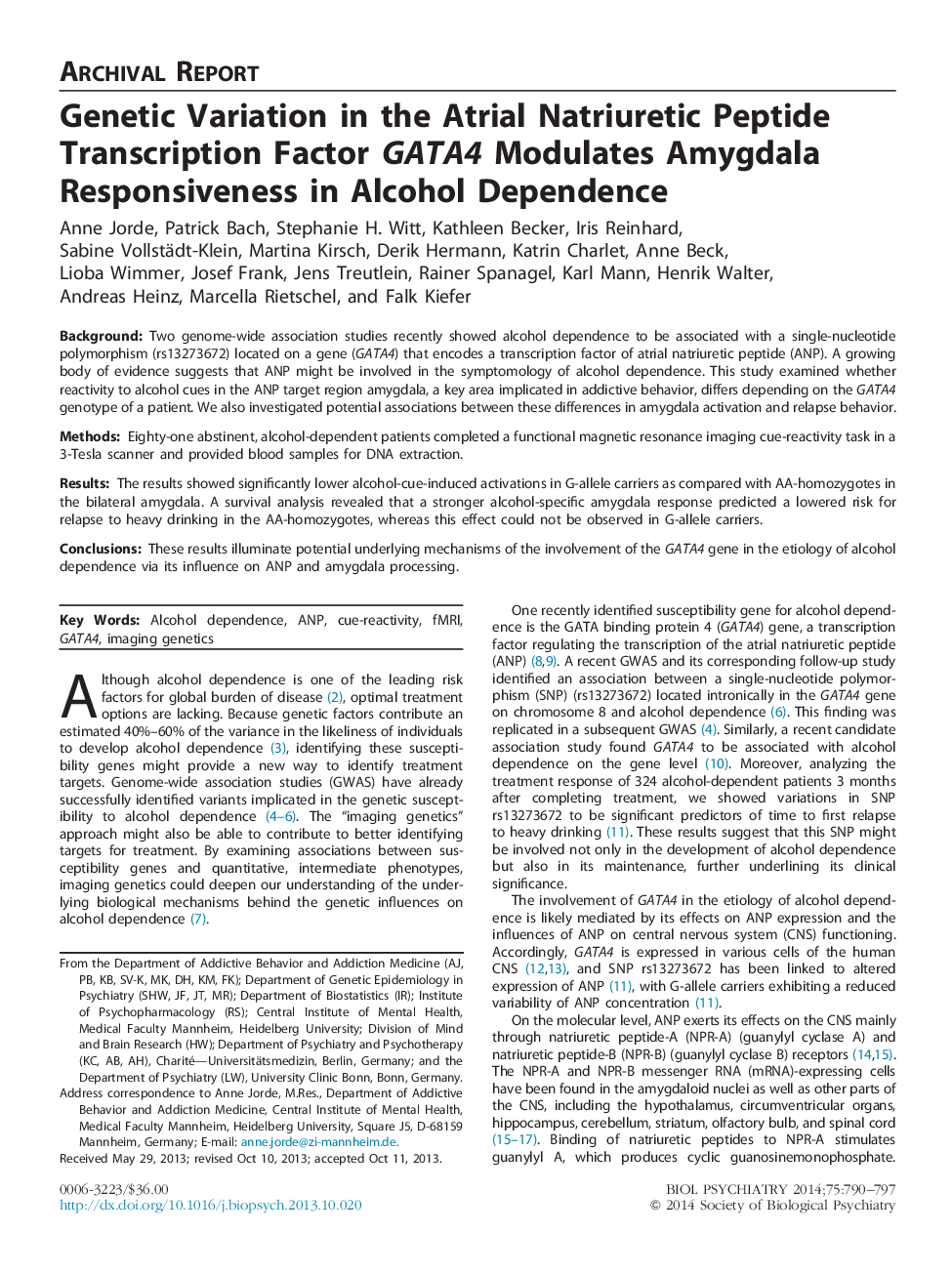| Article ID | Journal | Published Year | Pages | File Type |
|---|---|---|---|---|
| 4177842 | Biological Psychiatry | 2014 | 8 Pages |
BackgroundTwo genome-wide association studies recently showed alcohol dependence to be associated with a single-nucleotide polymorphism (rs13273672) located on a gene (GATA4) that encodes a transcription factor of atrial natriuretic peptide (ANP). A growing body of evidence suggests that ANP might be involved in the symptomology of alcohol dependence. This study examined whether reactivity to alcohol cues in the ANP target region amygdala, a key area implicated in addictive behavior, differs depending on the GATA4 genotype of a patient. We also investigated potential associations between these differences in amygdala activation and relapse behavior.MethodsEighty-one abstinent, alcohol-dependent patients completed a functional magnetic resonance imaging cue-reactivity task in a 3-Tesla scanner and provided blood samples for DNA extraction.ResultsThe results showed significantly lower alcohol-cue-induced activations in G-allele carriers as compared with AA-homozygotes in the bilateral amygdala. A survival analysis revealed that a stronger alcohol-specific amygdala response predicted a lowered risk for relapse to heavy drinking in the AA-homozygotes, whereas this effect could not be observed in G-allele carriers.ConclusionsThese results illuminate potential underlying mechanisms of the involvement of the GATA4 gene in the etiology of alcohol dependence via its influence on ANP and amygdala processing.
